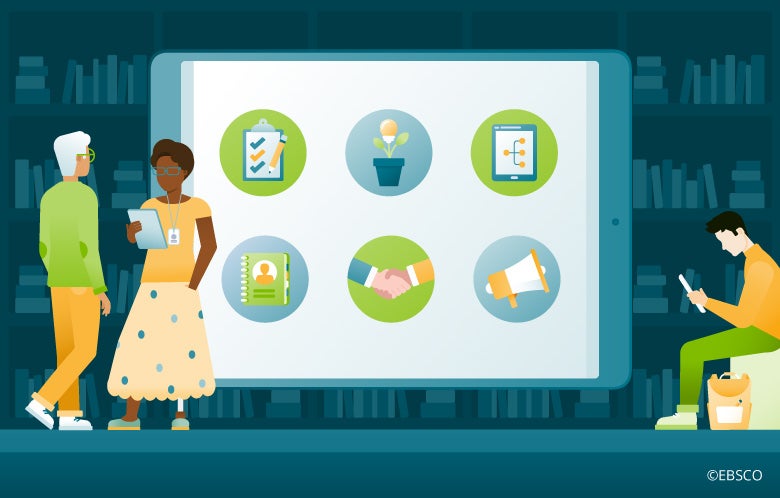Library Journal recently conducted an EBSCO-sponsored, business and career services survey of North American public libraries to quantify the extent to which they provide business and career development resources and programs for patrons looking to start a new business, change careers, or enter the workforce ― either for the first time or after an extensive absence.
The survey included an open-ended question that asked, “What advice would you give other public libraries just starting to offer career/business development services?” Based on the advice that librarians shared, we’ve curated a list of the top 10 recommendations. A link to the full report is also provided below.
- Assess the needs of your community. Talk to and survey your patrons. What are some of the questions they ask at the reference desk? Make a feedback form readily available online and in the library. Conduct a formal SWOT analysis.
- Be deliberate. Add career and business development services to your library’s strategic plan and get support from library administration. Hire a dedicated business librarian or designate a member of your existing staff to lead the charge.
- Start small. Determine the priorities and focus on those. Don’t try to do too much at once! Start with one initiative or service as your foundation.
- Keep it simple. Add a page for career and business development services to your library website. Curate links to your library’s existing resources as well as other freely available resources. If nothing else, you’ll have a dedicated place to direct entrepreneurs, job seekers and career changers.
- Network in your community. Build relationships with your local small business development center, rotary club, college or university. Look for opportunities to get in front of their leaders/members. Cross-promote each other’s resources.
- Develop (and maintain) a database of local businesses and business leaders. These are the individuals who can mentor budding entrepreneurs and participate in library programs such as round table discussions and networking events.
- Establish partnerships. Collaborate with local organizations, small business centers and workforce development agencies. You can refer patrons to them, and vice versa.
- Ask other libraries for advice. Learn from those who are already doing it well. Librarians will be eager to share their successes ― and failures!
- Spread the word. Big or small, promote your library’s career and business development resources, programs and services across multiple marketing channels. And make sure you and your partner organizations are talking up the library. Word of mouth is still one of the most effective marketing strategies.
- Be patient and persistent. It will take time to grow your library’s business and career development services. Tweak and adjust as you go.
To see high-level survey results, view the Public Libraries as Hubs for Workforce Development infographic.

